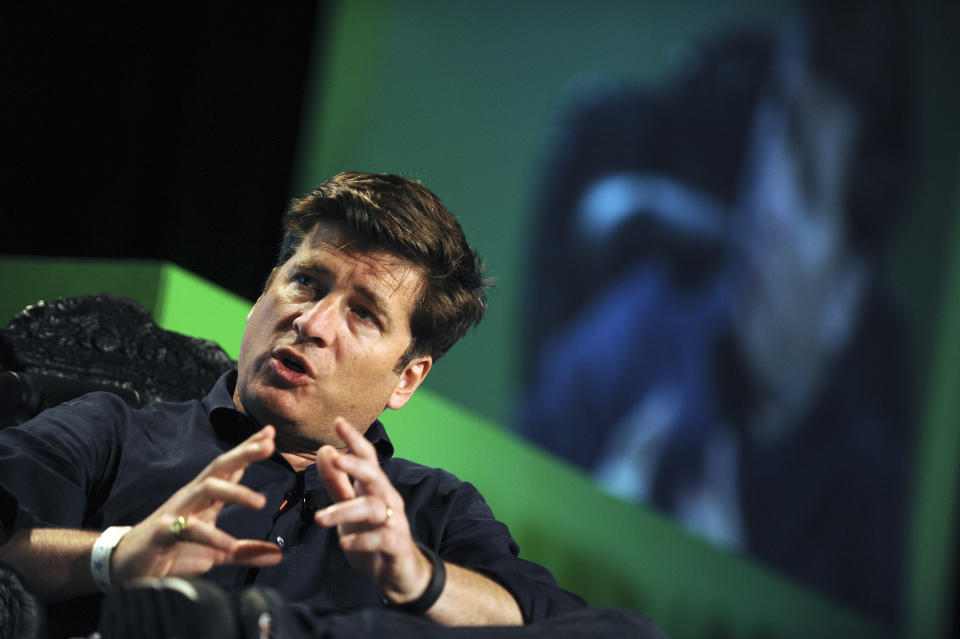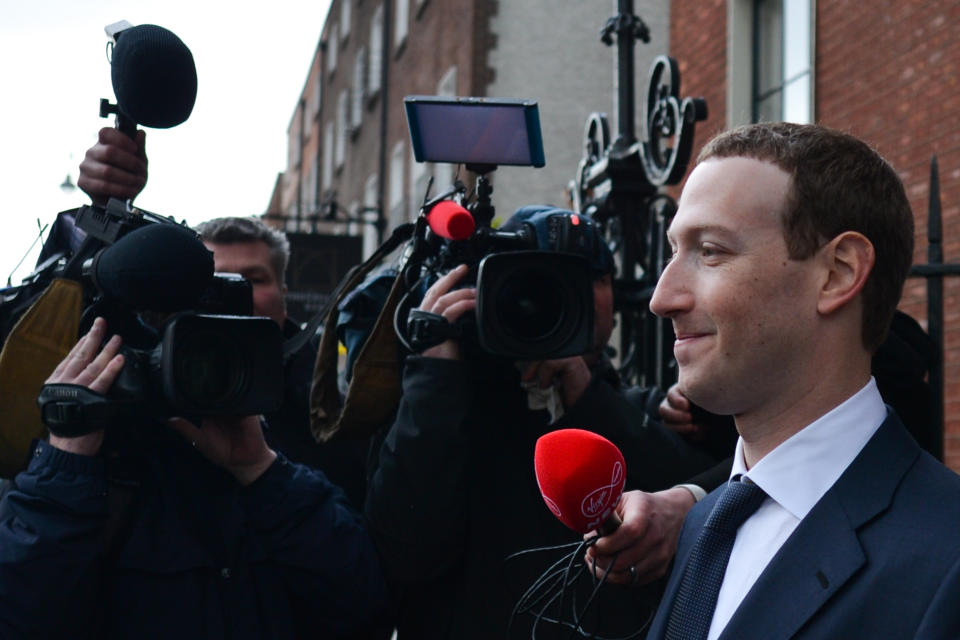Why a major tech investor has a 'growing unease about technology'
What does it tell you when high-profile tech visionaries increasingly disparage their own industry?
I just witnessed the latest case in point: Veteran venture capital investor John Borthwick warning attendees at the Newmark Graduate School of Journalism (at CUNY) gala last week to beware “the data-industrial complex.”
Borthwick, founder and CEO of betaworks which has seeded the likes of bitly, Chartbeat and Giphy, told a crowd of journalists, tech executives, academics and students: “I have a growing unease about technology today. You may too. We’re not wrong. Technology isn’t really working for us. We’re working for it.”
I’ll get into some specific points from Borthwick’s spot-on talk in a second, but first let me add some context. Borthwick’s criticism echoes that of longstanding tech investor Roger McNamee, whose book “Zucked: Waking Up to the Facebook Catastrophe,” is a scathing rebuke of Facebook’s practices and business model. (Just to give you an idea of McNamee’s bonafides, he first met Facebook CEO Mark Zuckerberg in 2006, and according to TechCrunch, McNamee’s company Elevation Partners bought 1% of Facebook in 2010 for $90 million, a stake now worth $5 billion.)

Then there’s Sean Parker of Napster and an early Facebook investor who’s come out and said that social media founders knew they were feeding into addictive behavior. VC Chamath Palihapitiya, who also worked at Facebook, now rails against social media. And former Google employee Tristan Harris now heads up the Center for Humane Technology, a group that includes current and former tech executives who believe the business has lost its way. (Heck, even Mark Zuckerberg himself is now calling for his business to be regulated.)
The ‘data-industrial complex’
True, there’s no shortage of social media critics these days, but when you have a cohort of high-pedigree insiders like that clamoring for change, we should pay attention.
It’s also worth noting Borthwick’s phraseology, “data-industrial complex,” which of course is a reference to President Dwight D. Eisenhower’s famous farewell address where he admonished Americans to “guard against...the military–industrial complex.” In the same way it was surprising and significant when one of our greatest military leaders warned us against the military, it’s striking that a leading technologist is sounding the alarm about tech. (Borthwick seems to have been self-aware of that point.)
Now let’s go back to Borthwick’s speech. He made me realize—in a way I hadn’t before—the incredible power the top players have over us. “A small number of companies—Google, Facebook, YouTube, Instagram—mediate the vast majority of our online experiences. The open internet has become a sidebar,” he said. “While the stated goal of these companies was search, or connecting friends, or maybe finding a video—it’s become to understand everything that they can do to shape our attention. And just as these platforms mediate us as users, they’re also mediating true innovation. Big tech companies are now how startups reach their customers. A typical startup will spend 40 cents of every dollar that it has on buying distribution, or buying customers, on these platforms.”

That made me consider how much of my internet time is spent under the auspices of these giant companies. Think Google search, Gmail, Google’s web browser Chrome, Facebook, and Instagram. In fact, I can’t remember the last time I WASN’T using these products and services to connect to the internet.
Borthwick ticks off a few abuses just this year: “...in January a journalist discovered Facebook was using a VPN to monitor kids’ use of competitive apps. Then in February, Google admitted that a Nest thermostat included an undisclosed microphone. Then in March, Facebook admitted it was harvesting phone numbers via a security feature. And last week, a journalist discovered that YouTube had quashed internal dissent around trending toxic content. And we’re not even 10 days into April.”
‘There should be consequences for the technology company’
The root cause of this behavior Borthwick says is “a culture of optimization on one hand, and on the other hand a market-driven imperative for growth.” That is what’s “driving these companies to extend and keep extending this industrial-data complex.”
To remedy the situation, Borthwick insists we need regulatory oversight: “The idea that technology is too fast, too nimble to be regulated, or that self-regulation will create open and fair competition, just hasn’t worked. Regulation and antitrust both can and should be applied. We did this with the pharmaceutical industry, we did this with finance, it can be done with tech.”
There needs to be personal accountability, he says. “...we should certify our professionals as we do with doctors and lawyers. If an algorithm fails to stop a live video of a massacre from trending, or if an algorithm in the software of an airplane mistakenly adjusts its flight pattern and causes it to nosedive, there should be consequences for the technology company and for the person who wrote the code.”
I’ve been thinking about Borthwick’s last point concerning physical harm, death and even murder that can now be endgendered by algorithms and software in our ever-more complex world. Borthwick said: “Technology isn’t in and of itself good or bad. But it’s not neutral.” Tech executives should heed that notion when, sounding like gun manufacturers, they suggest that their platforms don’t harm people, only people harm people.
Increasingly our country’s wild wild West, anything-goes absence of regulatory oversight for social media and tech companies looks anachronistic, naive, and worst of all, dangerous.
But don’t take my word for it. Ask the people who know the business best.
Andy Serwer is editor-in-chief of Yahoo Finance.
Read more:
Millionaire entrepreneur Gary Vaynerchuk defends AOC but not her tax plan
Drug companies that benefit from the war on opioid addiction
Why Google, Facebook, and Twitter don’t want to be media companies
